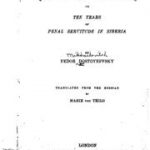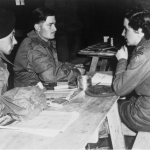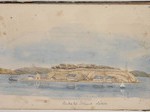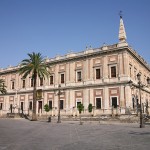
In my prison notebook
Last year I came across a rare archival find: multiple editions of a 19th century prison newspaper covertly produced by Russian inmates between 1890 and 1905. The newspaper editions, now brittle paper manuscripts fraying brown along their edges, were archived along with a note of introduction by the editor-in-chief. The editor describes the way in […]

Ecuadorian thoughts on religion, power and the subaltern classes
The Iglesia de la Merced, in Quito, was built in 1737 on the remains of the original church that dated from 1538 – four years after the foundation of the city. The church is situated in the city centre, at less than one kilometre distance from all other main sites of the colonial period: the […]

Conceptualising Islands in History: Considering Bermuda and Gibraltar’s Prison Hulks
By Anna McKay, AHRC Collaborative Doctoral Partnership Student, National Maritime Museum & University of Leicester. As a relatively new addition to the University of Leicester’s School of History and the Carceral Archipelago project, over the last few months I feel as if I’ve undergone a thorough “academic baptism”. Since beginning my PhD studies in […]

Convicts and other (“free” and “unfree”) workers. Views from the First ELHN Conference
How can we frame convict labour in the broader context of entangled labour relations? This is one of the key-questions in the Carceral Archipelago project, which seeks to understand how (especially transported) convicts interacted with other workers within and across empires. Some important suggestions for addressing this question emerged during the first European Labour History […]

Thinking About Convict Objects, in French Guiana
In the Musée Départemental Alexandre Franconie in Cayenne there is a room dedicated to the history of the French colonial bagne (prison). Among the displays of artwork copied from the paintings of the well-known convict artist Francis Lagrange are a handful of objects made by convict craftsmen. One is by Lagrange himself, a small and […]

Life-Writing, Prisoners of War and the Carceral Archipelago
by Grace Huxford Lecturer in Nineteenth/Twentieth Century History, University of Bristol At the Carceral Archipelago conference held in September at the University of Leicester, I delivered a paper on British prisoners of war during the Korean, on a panel regarding ‘Political Prisoners’. Chaired by Professor Mary Gibson (CUNY), with Aaron Moore (Leicester) and Natasha Pairaudeau […]

Indigenous Geographies of Carceral Islands
Aboriginal and Torres Strait Islander readers are advised that this post contains images of people who have died. At the Carceral Archipelago’s conference last month we discussed how landscapes around penal institutions could be rendered “empty” in our histories. This conception emerges from archival records in which land and sea are portrayed as “natural […]

The Carceral Archipelago Conference, Leicester 13-16 September 2015
The Carceral Archipelago conference, held in Leicester from 13 to 16 September 2015, felt just like reading over thirty outstanding monographs in two-and-a-half days, getting to know their authors personally, and having the chance to reflect collectively about their mutual entanglements. It was an intense marathon through the burgeoning field of the global history of […]

Sounds in the silence of political exile
My recent discovery of Alexander Sochaczewski’s painting, Farewell to Europe!, in the Museum Pawilon-X in Warsaw compelled me to think anew about the experience of political exile and about the innate “wordlessness” that the state intended it to symbolize. Although Sochaczewski never sold a single painting during his life, today his work is viewed by thousands of visitors who […]

On multi-sited research and mono-sited (nationalist) memory
Addressing convict transportation –the key feature in the Carceral Archipelago project – implies multi-sited research, that is, research in archives located in different places (and countries/continents). Indeed, as convicts were transported from site to site within and beyond the borders of empires and nation-states, they left traces in official records presently held in repositories across […]

Recent Comments